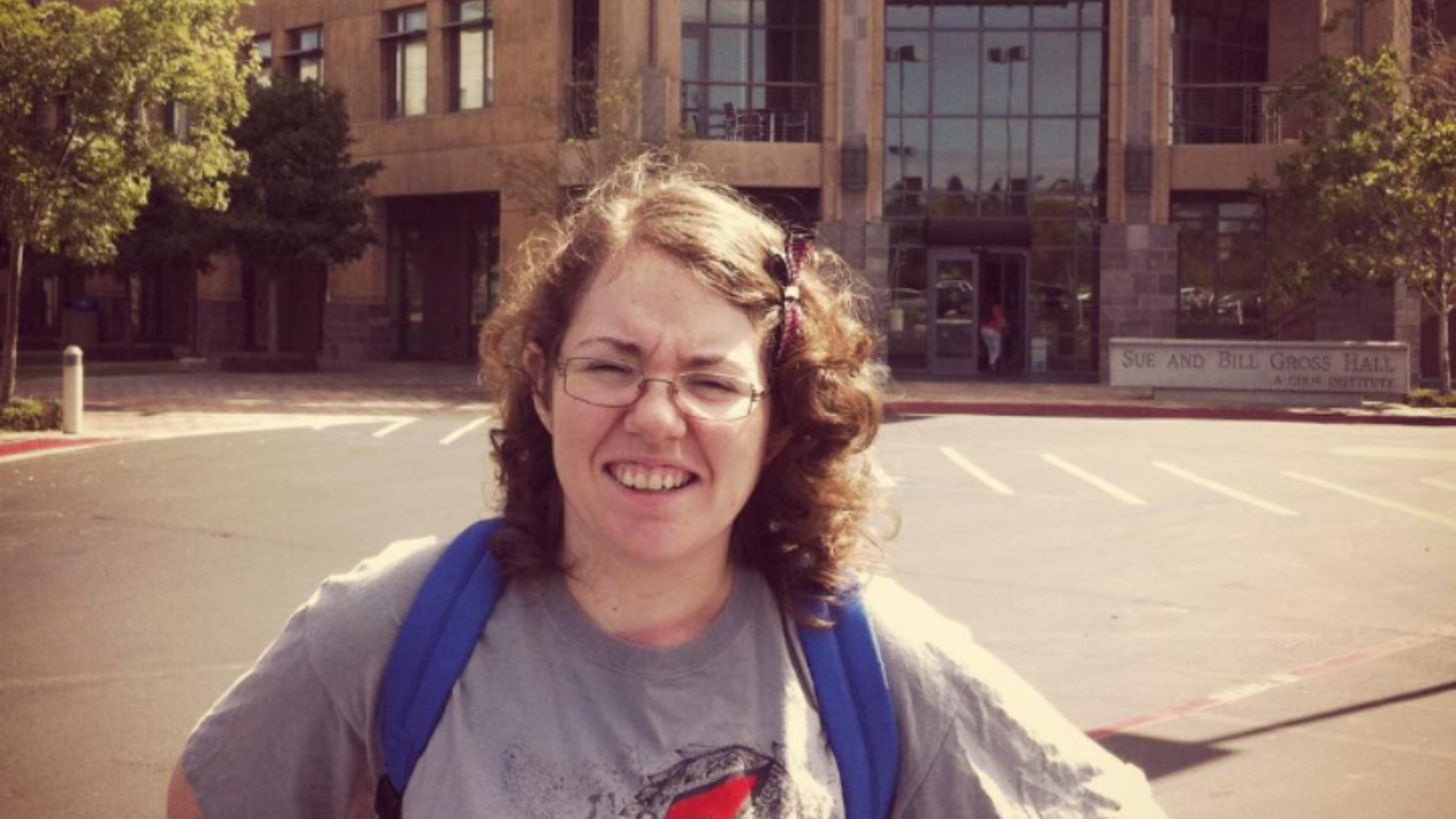Woman Discovers She Is Part of 0.00001% of the World That Can Remember Every Moment of Her Life Including Before Birth

Imagine being able to recall every moment of your life with pinpoint accuracy, from the events of yesterday to the distant echoes of infancy. Rebecca Sharrock is one of just 60 people worldwide who can do exactly that. Diagnosed with Highly Superior Autobiographical Memory (HSAM), she possesses an extraordinary cognitive ability that allows her to remember every detail of her life as if it were a continuous movie reel. This rare condition not only defines her extraordinary life but also challenges our understanding of human memory. While many might envy her remarkable recall, Rebecca’s story reveals that this unique gift comes with its own set of challenges and complexities.
Understanding HSAM: A Deep Dive into the Science
Highly Superior Autobiographical Memory, or HSAM, is a rare and intriguing neurological condition that allows individuals to recall the vast majority of their personal life experiences with incredible detail and accuracy. The term “HSAM” was first introduced in scientific literature after researchers began studying individuals who reported an unusual capacity to remember events from their past with astonishing clarity. This condition is also referred to as hyperthymesia, derived from the Greek words for “excessive” (hyper) and “memory” (thymesia).
Scientifically, HSAM is characterized by an enhanced ability to recall dates, sensory details, and the emotional nuances of personal experiences that most people would forget. Those with HSAM like Rebecca can often remember every day of their lives in near-perfect detail, including mundane details like what they wore on a specific date or what they ate for dinner on any given night years ago. This phenomenon contrasts sharply with the average person’s memory, which tends to be selective and often forgets the trivial details of daily life.
The science behind HSAM is still relatively nascent, with researchers striving to understand why and how this extraordinary memory capacity works. Studies suggest that individuals with HSAM may have differences in brain structures involved in memory processing, such as the amygdala and the hippocampus. These areas are known to play roles in emotional arousal and memory consolidation, respectively, and their enhanced activity or connectivity might contribute to the superior memory recall observed in HSAM subjects.
Furthermore, researchers are exploring how involuntary memory retrieval, meaning the spontaneous and uncontrollable recall of past events, operates in those with HSAM. Unlike typical autobiographical remembering, which often requires some effort or a specific cue, individuals with HSAM experience their past as a constant, vivid presence that can be both a gift and a burden.
Living with a Mind That Never Forgets
Rebecca Sharrock’s journey with Highly Superior Autobiographical Memory (HSAM) is as unique as the condition itself. From a very young age, Rebecca exhibited signs of her extraordinary memory, though it took years before she and her family understood what set her apart. Her earliest memories, detailed and vivid, date back to when she was just a few days old. She recalls sensations and visual details that would typically be far beyond the reach of an infant’s conscious memory, such as the texture of a blanket or the emotions associated with being held by her mother.
Growing up, Rebecca’s life was punctuated by moments of confusion and clarity as she navigated a world where her experiences of memory were vastly different from those around her. Initially, she believed that everyone remembered in the same way she did, which led to misunderstandings and social challenges. It was only during her teenage years, when watching a news segment on television about people with similar abilities, that she realized her capacity for recall was exceptional.
This revelation was a turning point for Rebecca. In 2013, after years of wondering why her memory was so different, she received a formal diagnosis of HSAM. This diagnosis helped frame her experiences and explained why she could recall every detail of every day of her life, no matter how insignificant it might seem to others.
The Benefits and Burdens of a Perfect Memory
 Image source: Shutterstock
Image source: Shutterstock
Rebecca Sharrock’s Highly Superior Autobiographical Memory (HSAM) provides her with an uncanny ability to recall the minutiae of her life, offering both significant advantages and formidable challenges. On the one hand, her exceptional memory serves as a powerful tool, enhancing her learning and retention abilities, which proves especially useful in academic settings or any scenario that benefits from precise recall. For instance, Rebecca can effortlessly remember information from books, conversations, and classes, making her a repository of knowledge and facts, which impresses and aids others in educational or professional contexts.
Moreover, her detailed memory allows for a rich personal historical record. Rebecca can recount events with such detail and accuracy that she serves as a living archive of her own life and the lives of those around her. This capacity can be particularly valuable for family histories or genealogical records where detailed accounts may otherwise be lost to time.
However, these benefits come with inherent burdens. The same vivid memories that aid her learning also mean that Rebecca lives with a constant replay of every moment—good and bad. This unselective memory prevents her from filtering out the trivial or distressing memories that most people naturally forget over time. As a result, her brain is often cluttered with what she describes as “useless clutter,” details that serve no purpose but to overwhelm her thoughts and make concentration on the present difficult.
Her perfect recall also disrupts the normal human process of emotional healing. Typically, as time passes, the emotional impact of memories tends to fade, which helps individuals recover from grief, trauma, or embarrassment. For Rebecca, however, memories never diminish in intensity. This can make personal development challenging, as she may struggle to form new perspectives or adapt to changes when her emotional experiences from the past remain as vivid as ever.
In social settings, Rebecca’s memory often sets her apart from others. While it can be a source of fascination, it can also isolate her, as she remembers every detail of social interactions, including slights or misunderstandings that others have long since forgotten. This aspect of her memory can make forgiveness and moving on from conflicts particularly challenging, as every past grievance is remembered as if it occurred yesterday.
The Weight of Remembering Everything
To navigate the challenges of her condition, Rebecca has developed strategies to manage the overwhelming flood of memories. She follows a structured routine to create stability and uses creative outlets like writing to process her thoughts. Mindfulness techniques help her stay grounded in the present, preventing past memories from constantly intruding on her daily life.
Seeking professional support has also been crucial. Therapy provides her with coping mechanisms to deal with the emotional intensity of her memories, while a strong social network helps her feel understood. By openly sharing her experiences, Rebecca not only raises awareness about HSAM but also finds purpose in helping others appreciate the complexities of memory.
A Life Etched in Memory
For most of us, time softens the past. The bad days blur, the embarrassing moments fade, and the heartbreaks lose their sting. But for Rebecca Sharrock, nothing fades. Every moment—good, bad, and everything in between—stays as sharp as the day it happened.
Her story makes you think: maybe forgetting isn’t a flaw in the human experience. Maybe it’s a gift. A way to heal, to grow, to move forward without being weighed down by every mistake or painful memory. Rebecca’s life is a reminder that while memories shape us, they don’t have to define us. What really matters isn’t how much we remember—it’s what we choose to carry with us.
Featured Image Source: Rebecca Sharrock on Instagram
Loading...






